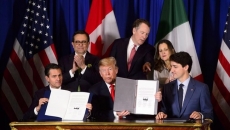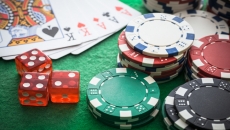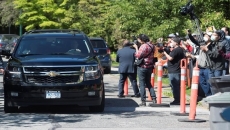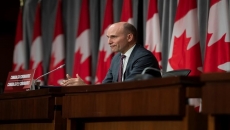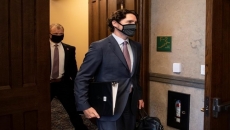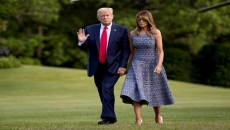America's anger, frustration and discord boiled over in Minnesota's Twin Cities on Friday at a remarkable moment in the history of the United States, sparked by the collision of racial injustice, freedom of expression and the worst public health crisis of the last 100 years.
After more than two months of pandemic-induced, self-imposed exile, protesters in Minneapolis — some wearing face masks not to conceal their identities, but to ward off COVID-19 — laid waste to city streets after the police killing Monday of George Floyd, an unarmed black man whose torturous eight final minutes of life were spent begging for mercy, a white police officer kneeling on his neck.
The anarchic scene took a dramatic turn early Friday when CNN reporter Omar Jimenez, who is black, was arrested on live television and led away in handcuffs, as were members of his crew. All three were released a short time later following an abject apology from Minnesota Gov. Tim Walz, who characterized the arrest as a mistake.
And when Donald Trump promised overnight to take a hard line against the "thugs" who were wreaking havoc — "when the looting starts, the shooting starts," he tweeted — Twitter responded with the unprecedented step of censoring the president of the United States, blocking, but not deleting, a tweet the social media platform said was "glorifying violence."
All of it prompted Prime Minister Justin Trudeau, unbidden, to do something he rarely does: comment publicly on another country's domestic affairs.
"Anti-black racism, racism, is real; it's in the United States, but it's also in Canada," Trudeau said Friday as he wrapped up his daily briefing outside his home at Rideau Cottage in Ottawa.
More than once he used the term "anti-black racism," a specific phrase that black communities have long advocated for in order to distinguish the express injustices black people face in Canada and around the world from other forms of discrimination.
"We need as a society to stand together, to stand up against discrimination, to be there for each other in respect, but also understand that we have work to do as well in Canada in our systems that we need to work forward on," Trudeau said.
"I call on all Canadians — whether it's anti-black racism or anti-Asian racism or racism discrimination of any type, to stand together in solidarity, to be there for each other and know just how deeply people are being affected by what we see on the news these past few days."
At a news conference, Walz called his state's response to the violence an "abject failure" and promised to ensure destruction in the streets does not distract from the ultimate goal of those protesting peacefully: swift justice for the officers involved in Floyd's death.
"Minneapolis and St. Paul are on fire. The fire is still smouldering in our streets. The ashes are symbolic of decades and generations of pain, of anguish unheard," he said.
"Generations of pain is manifesting itself in front of the world — and the world is watching."
Dozens of fires were also set in nearby St. Paul, where nearly 200 businesses were damaged or looted. Protests spread across the U.S., fuelled by outrage over Floyd’s death, and years of violence against African Americans at the hands of police. Demonstrators clashed with officers in New York and blocked traffic in Columbus, Ohio, and Denver.
Protests first erupted Tuesday, a day after Floyd's death in a confrontation with police captured on widely seen citizen video. In the footage, Floyd can be seen pleading as officer Derek Chauvin presses his knee against him. As minutes pass, Floyd slowly stops talking and moving.
State and federal authorities are investigating Floyd's death.
Chauvin, the officer who knelt on Floyd's neck, was fired Tuesday, along with three other officers involved in the arrest. Chauvin has been taken into police custody over Floyd's death.

